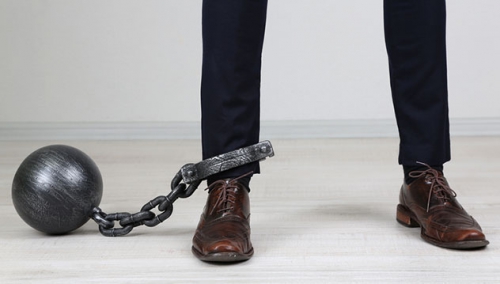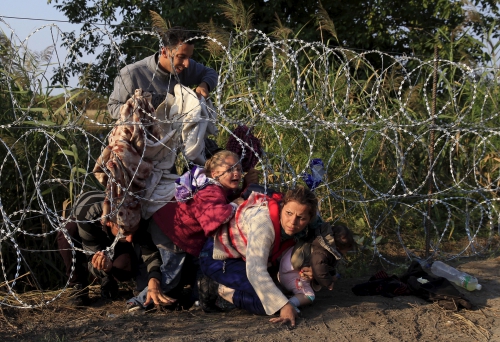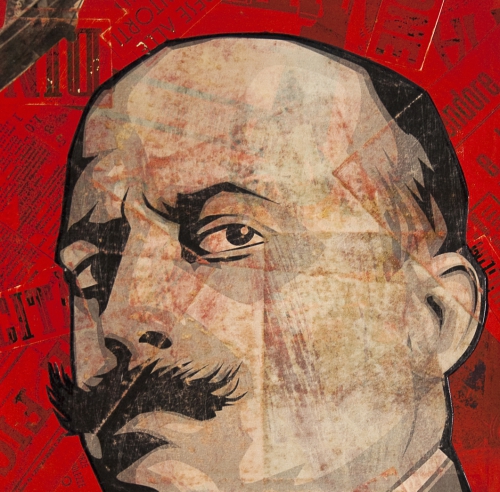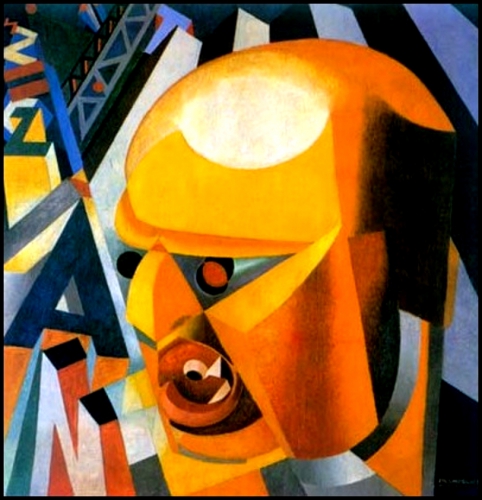Whether a massive movement of foreign peoples is a migration, an invasion, or a conquest is a matter of perspective. To the ancient Romans and later Romance historians, the migration of Germanic tribes into the empire in the 5th and 6th centuries was a catastrophic foreign invasion. To the Germanic peoples themselves, it was known as the Volkwanderung (the migration of the people). There is a profound irony that as waves of Muslim migrants press into Germanic Europe, that the very civilization they are now undermining was created in a series of migrations seen by the civilized people they replaced as an invasion. And just as Germanic tribal movements proved inexorable against the politically, economically, and morally weakened Roman state (at least in Western Europe), it appears (barring dramatic reversals of policy and will) that the ongoing wave of Muslim migration will inevitably replace European civilization as we know it. Even more worrisome, if history is any guide, this will happen long before Muslims become a majority there.
Western Europe today is the descendant of those long ago Germanic migrations. Those migrants were an aggressive minority who were able to dominate their new homelands and mostly rejected (or were incapable of effectively imitating) the civilized Roman world they'd moved into, with the exception of religion. Germanic tribal leaders were polytheists and, as much for political convenience as religious affinity, became Christian. This combination of Germanic cultural traits and Christianity, after a difficult start, became the world's most advanced and powerful civilization.
While today's Muslim immigrants to Europe don't outwardly resemble the Germanic migrants of old, there are a lot of similarities between the two migrations, which, given the outcome of the former, does not bode well for Europe today.
German migrants arrived as distinct minorities in their new homelands. They did not overwhelm Roman armies. Rather, they moved against weak opposition. Rome was already a greatly debilitated state by the time of the Volkwanderung. Roman elites had long lost the spirit to fight, while some, doubting the worthiness of their own long-lived culture, had come to admire their adversaries as more wholesome and pure than their own corrupted society. Even where Roman leaders did not admire the Germans, they bribed tribal leaders for alliances, hired them, and invited them into Roman territory. Meanwhile, the general Romanized populace was cowed, disenfranchised, and disarmed.
Roman armies, even when they fought, largely comprised German mercenaries, who had more in common with the new arrivals than their Roman masters. These mercenaries, their families, and earlier migrants bolstered the newcomers. But mostly, the Germanic migrants were quickly able to dominate new lands because they were tough, decisive, and aggressive, while the existing populations and their leaders were passive, disorganized, and confused.
Compare this to Europe today. Although the total number of Muslim immigrants may seem small against existing populations, this is misleading. They are moving into lands where substantial Muslim minorities already exist, and where asylum laws will allow them to bring in large numbers of relations. Muslim immigrants also have much higher birthrates than Western Europeans, who welcomed earlier waves of migrants as laborers. So demographically, things are in the migrants' favor.
But like ancient German migrants, Muslims will not need to reach majority status before they effectively dominate the continent. Germans were able to dominate new lands because they were more motivated, more determined, and more aggressive than the resident populations. This dynamic is evident in Europe today, where Muslims steadily and forcefully push their agenda within new homelands, erecting giant mosques, creating Islamic-dominated no-go zones, and instituting sharia law.
Of course, there was a strong military element to the Volkwanderung not as explicitly visible in the current Islamic migration but still very obviously present. For the settled populations of Romanized Europe the Germans were terrorists, heartless warriors who wrecked, raped, killed, and looted on their way across the countryside, cities, and towns. The name of one Germanic group, the Vandals, has become synonymous with wanton violence and destruction.
Islamic terrorism is the military element of today's migration and will almost certainly grow in intensity. The suicidal Muslim gunmen who terrorize European cities are the berserkers (the Vikings were Germanic, too) of this migration. They inspire fear and even a degree of awe among people who are shocked by such violent commitment. Even when the new migrants don't go on violent rampages with knives, guns, or bombs, they are aggressive and demanding. Refusing charity they deem inadequate, they push for more, even to the point of destroying what's given to them. They refuse to abide by the simplest of civilized conventions, such as using a toilet (much the way the ancient Germans wrecked public sanitation and defecated in fine basilicas.) The migrants happily stand by while their new hosts clean up after them. The mostly passive response of Europeans to these outrages, marching in peaceful rallies and calling for togetherness, will be laughed off by these new migrants, whose culture, mores, and objectives are at odds with this liberal post-national idealism.
It is mostly in religious aspects that the two migrations differ, but this difference offers Europe little comfort. The Germans who invaded Christianized Roman Europe, like most polytheists, were less firmly wedded to their gods than the monotheistic populations they encountered. Just as the polytheistic Romans eventually adopted Christian monotheism, so did the Germans. In both cases, this was partially out of political convenience, as both imperial Rome and later Germanic kings saw the utility of Christianity as a unifying political force. Ethical monotheism also offers philosophical, social, and ethical strengths that polytheistic systems mostly do not.
However, today it is Muslim migrants with the strong monotheistic system and settled European populations who lack one. Europe is in the thrall of a kind of vague, loosely held, atheistic social humanism, which is probably incapable of resisting the adherents of the strictest, most doctrinaire monotheistic system ever devised, Islam, which literally means "submission." Whereas the ancient migrating Germans, beginning with their elites, universally converted to the existing monotheistic system, in Europe today it is working in the opposite way.
It is the migrants with the stronger and more unyielding belief system. Muslim migrants to Europe tend not to assimilate, and if anything, they become more doctrinaire as way of self-identifying and distinguishing themselves from existing populations they see as inferior. Already in Europe a conversion process in underway, which not only includes disgruntled youth, but also educated elites. These converts lack moral underpinnings and find little objection to adopting the path of least resistance. Like the existentialist philosopher Martin Heidegger who had no problem joining the Nazis, European elites are likely to increasingly adopt Islam. Their ready, even enthusiastic adoption of Muslim positions with respect to Israel, and to a lesser extent the United States, are a sign of worse things to come.
The key historical point to recognize is that focusing on demographics, while important, ignores the fact that relative population size is not decisive. If current trends continue, Islamic politics and culture will dominate Europe long before Muslims reach a demographic majority, just as the German migrants dominated Romanized Western Europe while never constituting a majority of the population. The process is already well underway.
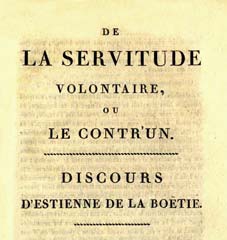 Comment cette tyrannie diffuse opère-t-elle, et nous coupe de toute possibilité d’exercer une quelconque liberté ? Etienne de la Boétie, dans De la servitude volontaire, montre que la liberté est très simple à obtenir : le tyran et ses amis ne pèsent rien face au peuple tout entier. Seulement, pour désirer quelque chose, il faut l’avoir connu. C’est pourquoi le tyran et ses amis tentent par-dessus tout de supprimer la mémoire de la liberté pour asseoir sa tyrannie. Pour cela, pas besoin de prendre la peine de supprimer la mémoire de la masse : l’abrutir suffit largement. Du pain et des jeux, disaient déjà les romains : nous avons les séries télévisuelles de masse, qui servent à saturer l’intelligence avec le non sens et l’affect primaire. Ce qui permet, par exemple, de faire passer tranquillement l'acceptation d'une arithmétique électorale étrange, comme en Suisse récemment. Une tyrannie bien entretenue s’enracine dans l’ignorance et se perpétue par l’oubli de la liberté.
Comment cette tyrannie diffuse opère-t-elle, et nous coupe de toute possibilité d’exercer une quelconque liberté ? Etienne de la Boétie, dans De la servitude volontaire, montre que la liberté est très simple à obtenir : le tyran et ses amis ne pèsent rien face au peuple tout entier. Seulement, pour désirer quelque chose, il faut l’avoir connu. C’est pourquoi le tyran et ses amis tentent par-dessus tout de supprimer la mémoire de la liberté pour asseoir sa tyrannie. Pour cela, pas besoin de prendre la peine de supprimer la mémoire de la masse : l’abrutir suffit largement. Du pain et des jeux, disaient déjà les romains : nous avons les séries télévisuelles de masse, qui servent à saturer l’intelligence avec le non sens et l’affect primaire. Ce qui permet, par exemple, de faire passer tranquillement l'acceptation d'une arithmétique électorale étrange, comme en Suisse récemment. Une tyrannie bien entretenue s’enracine dans l’ignorance et se perpétue par l’oubli de la liberté.


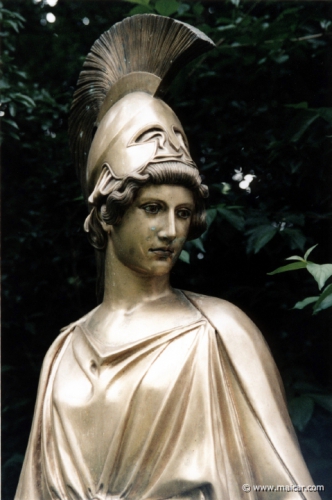


 del.icio.us
del.icio.us
 Digg
Digg